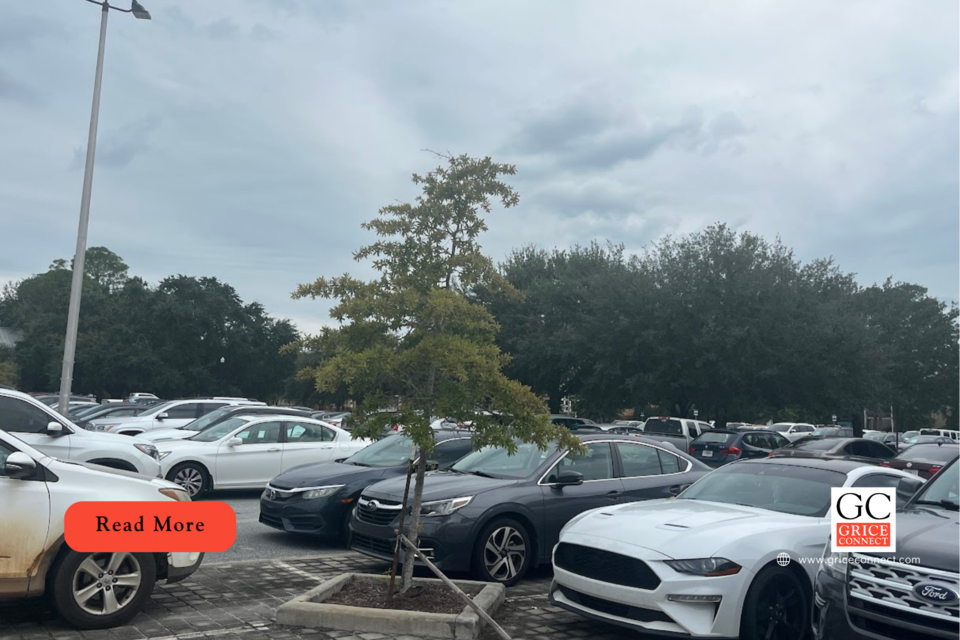Parking and transportation remain hot topics on Georgia Southern University’s Statesboro campus as the fall semester gets underway. With record enrollment climbing to nearly 29,000 students, some have voiced frustrations about finding spaces and adjusting to new shuttle routes, while university officials say the system is working as intended.
Jennifer Wise, Chief Communications Officer for Georgia Southern, addressed the issue in a statement to Grice Connect, offering clarification on how parking zones and bus routes are managed. Wise emphasized that the university’s approach to parking and transportation is based on data, best practices, and safety considerations.
Parking policies
Wise explained that students purchase zone permits, which guarantee a space within their assigned zone rather than in a specific lot. “Zones are designed to balance both convenience and space availability,” she said. “Parking data shows that Zones 1, 2 and 3 have never reached full capacity at any given time.”
Like many universities, Georgia Southern sells more permits than there are spaces, a practice Wise said helps keep costs lower for students. “We understand that highly convenient parking is preferred by students; however, the University is following best practices in determining the number of parking permits sold for each parking zone,” she said.
Wise noted that while certain lots may fill quickly during peak class times, there is still capacity across the system. She added that the university continues to evaluate parking needs on an ongoing basis.
Bus stop relocation
The university also addressed concerns about a bus stop relocation at Cambridge at Southern apartments. Wise said the stop was moved to the K1 lot on university property to serve a larger group of students living in Cambridge, Axis, and Southern Courtyard.
“Relocating the stop…moves it away from heavy traffic on Lanier Drive and provides a more controlled waiting and boarding on-campus environment,” she said. Wise added that the change was made after considering student input, safety concerns, and shuttle route efficiency.
Looking ahead
Wise said both parking and transportation will continue to be evaluated as the semester progresses, but there are no immediate plans to add new parking lots or change routes again this year.
However, in 2023, a 568-space parking lot was placed where University Villas (on Chandler Drive) had been located. This lot also includes 10 EV charging stations.
Still, transportation has become one of the most discussed issues of the semester among students. Some describe circling lots for extended periods before class, with the most convenient spaces filling within minutes of peak hours. Others have expressed frustration that while there may be open spaces further out, reaching them can mean longer walks across campus in heat, rain, or darkness.
Concerns have also been raised about the impact beyond university grounds. Off-campus business lots have seen an increase in student vehicles, sometimes leading to towing or ticketing. For those without personal transportation, the relocation of shuttle stops has added new challenges, particularly at large housing complexes where residents had come to rely on direct campus service.
These frustrations have fueled petitions, group discussions, and calls for the university to revisit its current approach. While the administration maintains that its policies are grounded in data and safety, many students continue to question whether those decisions reflect the realities of daily campus life.




